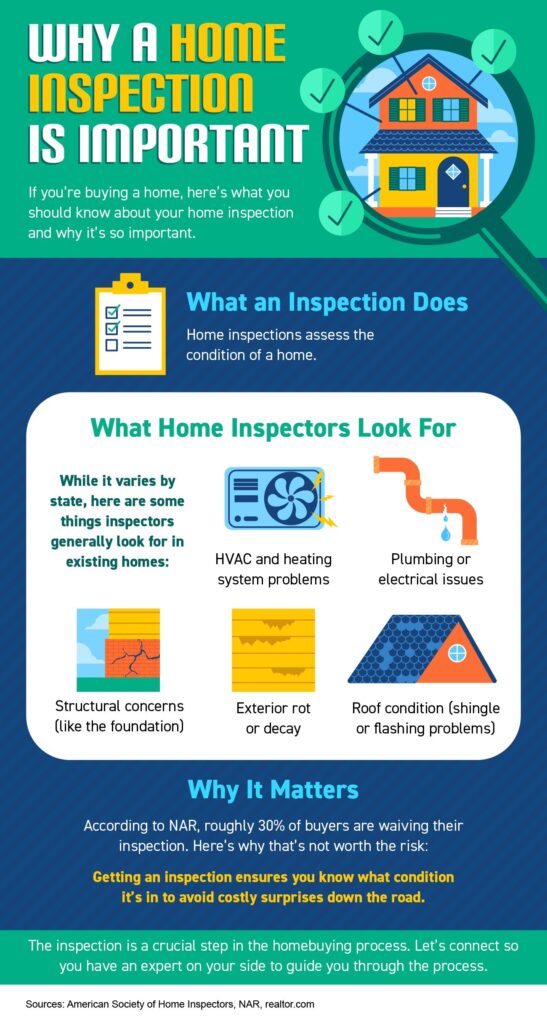If you’re planning to buy a home in the future, the home inspection and appraisal are two important steps in the home buying process moving from “offer accepted” to the official “sold!”. Both provide information that can make, break, or renegotiate the home sale and have unique implications that differentiate them.
In most cases, an appraisal is ordered by the lender to confirm or verify the value of the home prior to lending a buyer money for the purchase. Here’s a breakdown of each one and why they’re both important when purchasing a home.
Home Inspection
A home inspection is conducted by a professional home inspector to assess the condition of the home before the transaction is finalized. The home inspection is a way to determine the current state, safety, and condition of the home before you finalize the sale.
The home inspection company is typically selected and paid for by the home buyer, and it is common for the inspection to be scheduled within the first 10 days of an accepted contract. This allows the buyer to receive results from the inspection early within the first 2 weeks of being under contract. It’s a different step in the process from a home appraisal, which is a professional evaluation of the market value of the home you intend to buy.
As Bankrate describes it, the simple difference is this:
“In short, while an appraisal helps you understand a home’s value, inspections help you understand a home’s condition.“
If anything is questionable or raises red flags in the inspection process – like potential damage to the roof, the state of the HVAC system, signs of water damage, or just about anything else – you as a buyer have the option to discuss and negotiate any potential issues or repairs with the seller before the transaction is final. Your real estate agent is a key guide to help you through this part of the process.

Home Appraisal
The National Association of Realtors (NAR) explains:
“A home purchase is typically the largest investment someone will make. Protect yourself by getting your investment appraised! An appraiser will observe the property, analyze the data, and report their findings to their client. For the typical home purchase transaction, the lender usually orders the appraisal to assist in the lender’s decision to provide funds for a mortgage.“
When you apply for a mortgage, an unbiased appraisal is required by the lender and is the best way to confirm the value of the home based on the sale price. The lender will order the appraisal once the buyer is under contract, and the fee is paid for by the purchaser directly or through the closing costs (paid on the Closing Day). Regardless of what you’re willing to pay for a house, if you are using a mortgage to fund the purchase, the appraisal will help make sure the bank doesn’t loan you more than what the home is worth. This is a protection to the buyer and lender in order to mitigate risk.
This is especially critical in today’s sellers’ market where low inventory is driving an increase in bidding wars, which can push home prices upward. When sellers are in a strong position like this, they tend to believe they can set whatever price they want for their house under the assumption that competing buyers will be willing to pay more.
However, the lender will only allow the buyer to borrow based on the value of the home. This is what helps keep home prices in check. If there’s ever any confusion or discrepancy between the appraisal and the sale price, your trusted real estate professional will help you navigate any additional negotiations in the buying process.
Bottom Line
The inspection and the appraisal are critical steps when buying a home, and you don’t need to manage them by yourself. Let’s connect to ensure you have the right guidance you need to navigate the homebuying process!
